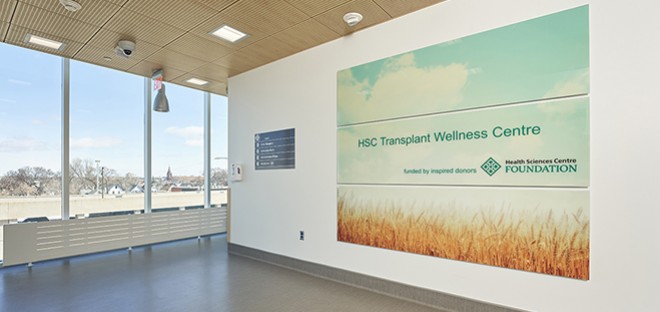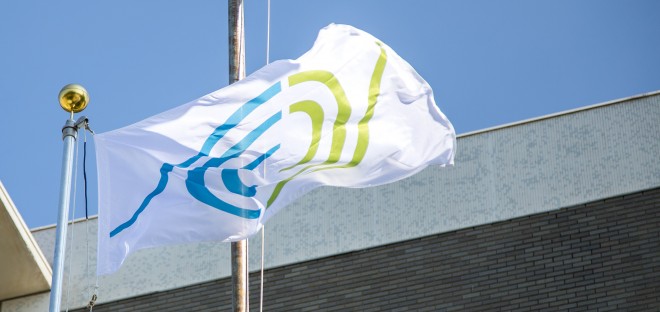Information for healthcare professionals
Introduction
Organ donation is a team effort. As a healthcare professional at your hospital, you are an integral part of the donation team. It is you who will have first contact with a donor family. You may be a person they remember the most. This role comes with serious responsibilities and cannot be taken lightly. The following information will inform and guide unit staff about organ donation, routine notification and the donation process, as well as introducing staff to Transplant Manitoba – Gift of Life.
Transplant Manitoba – Gift of Life
Transplant Manitoba - Gift of Life and Tissue Bank Manitoba are the Human Tissue Gift Agencies in Manitoba. Both work tirelessly to promote awareness of organ and tissue (including eye) donation.
The opportunity for organ and tissue donation is every family’s right and it is the responsibility of all members of the donation and healthcare team. It is a privilege to work with families during this difficult time in their lives and to play a role in the good that can come from giving the gift of life. Transplant Manitoba – Gift of Life’s goal is to ensure all the Manitoba families we serve have the opportunity to consider organ donation, if it is an option for them, and to provide them with the information they need to make informed decisions regarding organ and tissue donation.
The team includes a donor physician, donor coordinators (nurses), administrative staff, and a process quality engineer.
Contact information:
- Donor Referral – 204-787-2071. Ask to speak to the Donor Coordinator on call.
Human Tissue Gift Act and Routine Notification
Transplant Manitoba – Gift of Life operates under Health Canada regulations regarding human organ transplantation as well as the Human Tissue Gift Act.
In 2014 Transplant Manitoba – Gift of Life, in partnership with the Winnipeg Regional Health Authority, developed a mandatory referral policy to further support the Act, specific to:
“Subject to the requirements and circumstances established under subsection 4.2(1), a designated facility must notify the required human tissue gift agency when (a) a patient at the facility dies;
(b) a physician at the facility advises that the death of a person at the facility is imminent and inevitable; or (c) the facility receives a dead body.”
The policy states all Winnipeg Intensive Care Units and Emergency Departments contact the program after the decision has been made to withdraw life-support, and the patient meets routine notification criteria outlined below. This allows all potential donation opportunities to be considered. Each individual’s eligibility to donate is evaluated on a case by case basis.
Intensive Care Units and Emergency Departments outside Winnipeg are not currently bound by this policy, however remain part of the referral legislation in the HTGA. Patients in rural sites can and should be referred to Winnipeg for further diagnostic testing and/or for organ donation referral.
Here is the full Multi-Organ Donation: Routine Notification policy.
Eye and tissue donation follow different criteria. For information on eye donation and tissue donation, please contact Tissue Bank Manitoba.
Routine Notification criteria
The Donor Coordinator must be notified when your patient meets the following:
• ventilated
• end of life discussion is planned
If you are unsure if the patient qualifies for organ donation, please contact the Donor Coordinator. Donor Coordinators are available 24 hours a day, seven days a week to answer any questions. Donor Coordinators also have access to an on call organ donor physician.
To refer a potential donor, call Health Sciences Centre paging at 204-787-2071 and ask to speak to the Donor Coordinator on call.
A Routine Notification Criteria poster can be requested for your area. Please contact Transplant Manitoba – Gift of Life for one or if additional copies are required.
Organ donation opportunities include, but are not limited to:
• CVA
• suicide
• intracranial hemorrhages
• cardiac arrest
• homicide
• spontaneous/traumatic
• trauma
• drug overdose
• MAID
Organ donation categories
• Neurological Death Donation (NDD) – Brain death occurs when a clot, swelling or bleeding cuts off blood supply to the brain long enough for brain tissue to die. Patients no longer respond to stimulation or breathe on their own.
• Donation After Cardio-circulatory Death (DCD) – When an intubated patient is expected to die soon after life support systems are removed. If the heart stops beating, the patient is no longer breathing and death happens within two hours of extubation, donation can proceed.
Donor referral checklist
Specific information is required to evaluate the suitability of a potential organ donor. Please complete the checklist before contacting the Donor Coordinator on call. When all the necessary information is available, the coordinator can assist you more effectively.
Organ Donation Process
Our philosophy
Our team values the relationships that physicians and nurses have developed with families during a really difficult time. We work in partnership to provide families with the opportunity to consider organ donation. Through effective coordination and communication, we give family members the information they need to make enduring, informed decisions about donation and honouring the wishes of a loved one.
Transplant Manitoba – Gift of Life employs an effective requesting model when meeting with a family to discuss organ donation as a possible option. This allows a collaborative, compassionate and supportive conversation and supports a meaningful exchange of information regarding donation and its value.
Our goal is to assist families to reach an enduring decision. As a program, Transplant Manitoba – Gift of Life would rather have a no, than a yes to a donation with regret. Our goal is to provide families with information that encourages them to reach the same decision they would have made at that moment, three months earlier, or forward into the future.
Meeting families
Organ donation is introduced only once an end of life discussion has occurred, and the Donor Coordinator has confirmed the patient could be a candidate. The initial discussion with family regarding the possibility of organ donation is done by a Transplant Manitoba – Gift of Life Donor Coordinator. If families ask about organ donation, hospital staff can advise another team member will be speaking with them about end of life options. Family can take the time they need to decide if donating is an option for them or if it is something they would like more information about. Donor Coordinators can speak to family in person or by phone.
Consent process
The consent process works differently for NDD and DCD.
• Consent for NDD cannot be obtained until two neurological determination of death assessments are performed by two different attending physicians. These physicians must be skilled in neurological assessment. The assessment cannot be done by medical students or residents.
• Consent for DCD is different. There must be a documented end of life discussion stating bilateral agreement of the withdrawal of life-sustaining treatment.
As a physician or nurse outside the WRHA, please contact the Donor Coordinator with the referral before discussing organ donation with the family. If the patient is a suitable donor candidate, the physician or nurse can ask family if they are interested in speaking with the donation team.
The Donor Coordinator will arrange a time to speak with family. Consent will be obtained by the coordinator from the patient’s substitute decision-maker at the hospital. If the family is not with the patient, or unable to accompany the patient to the procurement center, consent can be completed by phone.
Donor admission
The Gift of Life donor physician can direct a referring physician regarding the referral process and admission to a WRHA/Shared Health Critical Care bed. The Donor Coordinator will assist in facilitating this process.
NDD and DCD donor management
For further information on NDD and DCD please visit these links:
• DCD
• NDD
• Donor management
• Leading practices and clinical guidelines
Signupforlife.ca
Organ donation saves and improves the quality of life for thousands of Canadians every day. Currently there are not enough donors to meet the growing need for transplanted organs. Signupforlife.ca is Manitoba’s online organ and tissue donor registry. Using three pieces of information (name, birthdate and nine-digit PHIN) Manitobans can register their intent to donate organs and/or tissues after death. This information is securely recorded and will only be accessed by Transplant Manitoba – Gift of Life staff if the information is required.
The person’s registration choices will be used to let physicians, donor coordinators and Tissue Bank Manitoba staff know that donation was important to them. These final wishes will also be shared with family members so they are aware of the decisions that were made and that the gift of life was intended to go forward to another in need.








